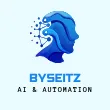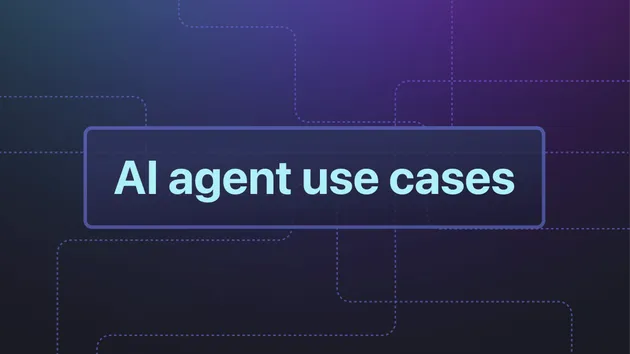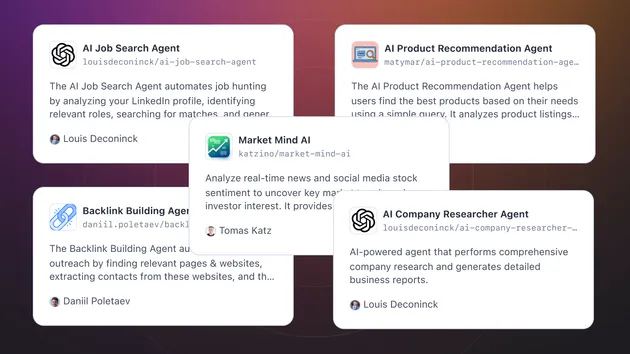Artificial Intelligence News Intelligence Pipeline (AI-Powered)
Pricing
Pay per event
Artificial Intelligence News Intelligence Pipeline (AI-Powered)
Under maintenanceThis Apify Actor processes AI and Tech news from major RSS feeds and transforms headlines into structured, actionable intelligence using the Google Search Results Scraper's AI Overview and combined Language Model (LLM) analysis.
0.0 (0)
Pricing
Pay per event
1
2
2
Last modified
11 hours ago
🤖 AI News Intelligence Pipeline
This actor provides a powerful, automated pipeline to transform raw cybersecurity news from top RSS feeds into structured, actionable threat intelligence. It uses the Google Programmable Search API to gather real-time context and an LLM (OpenAI) to perform advanced analysis, ensuring your data is both current and insightful.
Features
- Comprehensive Source Aggregation: Gathers news from a curated list of top-tier cybersecurity RSS feeds.
- Real-Time Grounding: Uses the Google Programmable Search API to enrich each article with up-to-the-minute context before analysis, preventing outdated results.
- Advanced AI Analysis: Leverages a Large Language Model to analyze each article for sentiment, categorize the threat type (e.g., Malware, Data Breach), and extract key entities (e.g., threat groups, CVEs, companies).
- Duplicate Prevention: Intelligently tracks processed articles across runs to ensure you only process and pay for new information.
- Cost-Saving Test Mode: Includes a test mode to run the full workflow with dummy data, allowing for development and testing without incurring API costs.
Setup and Configuration
Before running the actor, you need to provide API keys for the services it relies on.
- Google Programmable Search API:
- You will need a Google API Key and a Search Engine ID.
- Follow the instructions here to get your credentials.
- OpenAI API Key:
- You will need an API key from your OpenAI account.
Add Keys to Apify Secrets
For security, add these keys as secret environment variables in your Apify Actor settings:
GOOGLE_API_KEY: Your Google API Key.GOOGLE_CSE_ID: Your Programmable Search Engine ID.OPENAI_API_KEY: Your OpenAI API Key.
Cost of Usage 💸
This actor incurs costs from three sources:
- Apify Platform Usage: Standard platform costs for running the actor, which depends on the duration of the run.
- Google Programmable Search API: The actor makes one search query for every article it processes. Google provides a free tier of 100 queries/day, after which it costs approximately $5 per 1,000 queries.
- OpenAI API: This is the primary cost. The actor makes two LLM calls for every article: one for analysis and one for summarization. The cost depends on the model you use and the number of tokens processed.
Input
| Field | Type | Default | Description |
|---|---|---|---|
source | String | all | The cybersecurity news source category to use. |
customFeedUrl | String | null | A custom RSS feed URL to use if source is set to custom. |
maxArticles | Integer | 20 | The maximum number of new articles to fetch and process in a single run. |
useSummarization | Boolean | true | If enabled, the actor will generate an AI summary for each article, incurring an additional LLM cost. |
runTestMode | Boolean | false | Bypasses all external API calls for zero-cost testing. Do not enable in production. |
Output
The actor saves its results in the dataset. Each item is a structured JSON object with the following fields:
| Field | Type | Description |
|---|---|---|
source | String | The name of the news source (e.g., 'The Hacker News'). |
title | String | The original title of the news article. |
url | String | The URL of the original article. |
published | String | The publication date string from the RSS feed. |
summary | String | The AI-generated summary of the article. |
sentiment | String | The AI-analyzed sentiment (e.g., High Risk, Medium Risk). |
category | String | The AI-assigned category (e.g., 'Malware/Ransomware', 'Data Breach/Hack'). |
key_entities | Array of Strings | A list of key entities like companies, threat actors, or CVEs mentioned. |
On this page
Share Actor:





